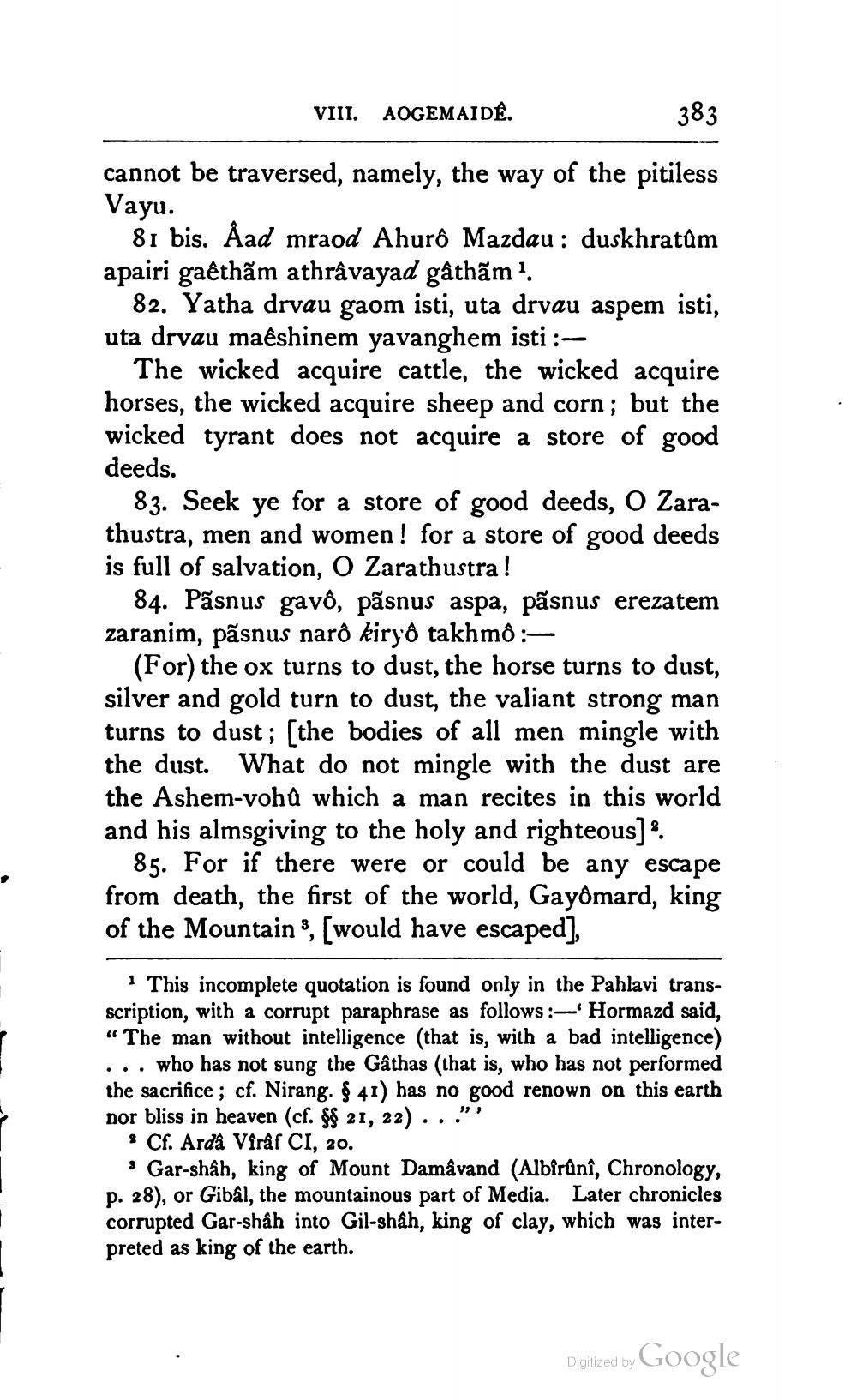________________
VIII. AOGEMAIDÊ.
383
cannot be traversed, namely, the way of the pitiless Vayu.
81 bis. Åad mraod Ahurô Mazdau : duskhratâm apairi gaêthăm athravayad gåtham.
82. Yatha drvau gaom isti, uta drvau aspem isti, uta drvau maêshinem yavanghem isti :
The wicked acquire cattle, the wicked acquire horses, the wicked acquire sheep and corn; but the wicked tyrant does not acquire a store of good deeds.
83. Seek ye for a store of good deeds, O Zarathustra, men and women! for a store of good deeds is full of salvation, O Zarathustra!
84. Păsnus gavo, pãsnus aspa, pãsnus erezatem zaranim, pãsnus narô kiryð takhmô:
(For) the ox turns to dust, the horse turns to dust, silver and gold turn to dust, the valiant strong man turns to dust; (the bodies of all men mingle with the dust. What do not mingle with the dust are the Ashem-vohû which a man recites in this world and his almsgiving to the holy and righteous] 2
85. For if there were or could be any escape from death, the first of the world, Gayômard, king of the Mountain 3, [would have escaped],
1 This incomplete quotation is found only in the Pahlavi transscription, with a corrupt paraphrase as follows: Hormazd said, “The man without intelligence (that is, with a bad intelligence) ... who has not sung the Gâthas (that is, who has not performed the sacrifice ; cf. Nirang. $ 41) has no good renown on this earth nor bliss in heaven (cf. $$ 21, 22)..."! . Cf. Arda Vîrâf CI, 20.
Gar-shah, king of Mount Damavand (Albîrûnî, Chronology, p. 28), or Gibal, the mountainous part of Media. Later chronicles corrupted Gar-shâh into Gil-shah, king of clay, which was interpreted as king of the earth.
Digitized by Google




